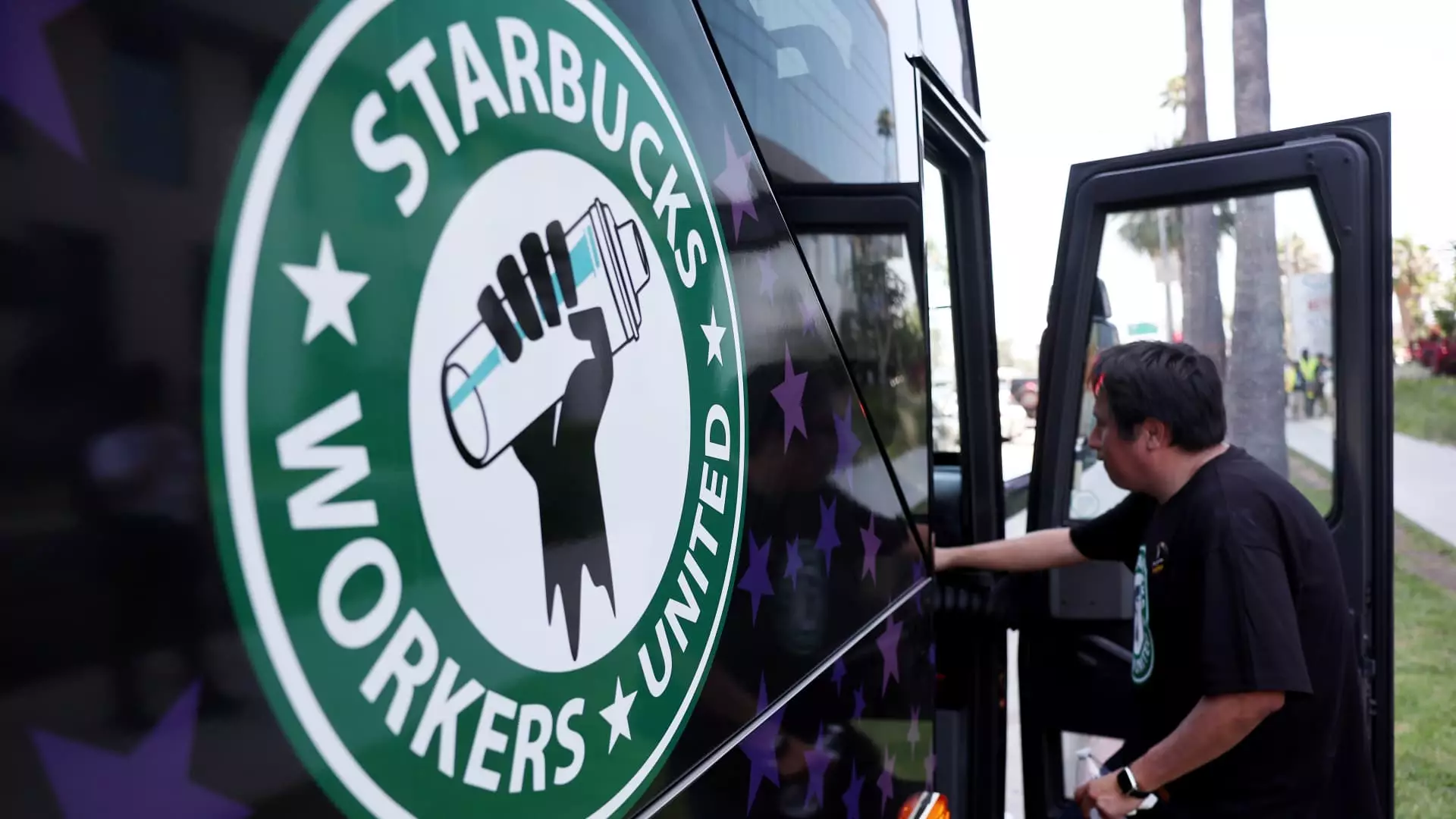In a momentous announcement from Starbucks Workers United, an overwhelming 98% of baristas have voted in favor of authorizing a strike in pursuit of a new contract with Starbucks. This collective action underscores the union’s determination and signals a growing discontent among employees regarding working conditions and pay. The urgency to negotiate arises as the bargaining team prepares for a crucial session with Starbucks, aiming to establish a foundational framework before the year concludes. The current climate, fraught with tension and unmet commitments, has left many workers feeling the pressure to take decisive action.
Throughout the year, both Starbucks and Workers United have engaged in extensive negotiations, dedicating countless hours to the bargaining table. Despite numerous tentative agreements being proposed, significant issues related to fair labor practices and employee compensation remain unresolved. The union has pointed out that there are still hundreds of unfair labor practice claims that have yet to be addressed. Starbucks’ failure to present a comprehensive benefits package, particularly regarding barista pay, highlights a stark division between the company’s pledges and the realities faced by its employees. Such discrepancies only fuel the sentiments driving the strike authorization.
Starbucks has responded to the union’s claims with a declaration of commitment to reaching an agreement, suggesting that the negotiations have been fruitful. Company representatives argue that significant progress has been made, citing thirty meaningful agreements on various topics deemed important by Workers United. However, this optimistic narrative contrasts sharply with the union’s claims of ongoing discontent, indicating that what one side views as progress, the other perceives as insufficient and uninspired.
The backdrop of this brewing conflict is essential given Starbucks’ historical resistance to unionization, particularly as the movement gained momentum in recent years. The company’s tactics to stifle union efforts have received backlash from both consumers and lawmakers alike, casting a shadow on its public image. Former CEO Howard Schultz’s testimony before Congress epitomized this struggle, showcasing the complexities involved in balancing business objectives with employee rights.
As Starbucks faces potential disruptions on the horizon, recent leadership changes add another layer of complexity to the negotiations. Incoming CEO Brian Niccol’s pledge to negotiate in good faith, coupled with an announcement to enhance paid parental leave, suggests a willingness to adapt. Yet, with baristas impending smaller annual wage increases amid a reported sales slump, the company’s path toward reconciliation appears fraught with challenges. The trajectory of this conflict will not only affect employees but also the broader implications for labor relations within the retail sector.
The looming strike by Starbucks baristas not only reflects significant employee unrest but also symbolizes a larger struggle between labor rights and corporate practices. As negotiations advance, the outcome could redefine the relationship between Starbucks and its employees, potentially setting a precedent for other companies navigating similar unionization efforts.

Leave a Reply